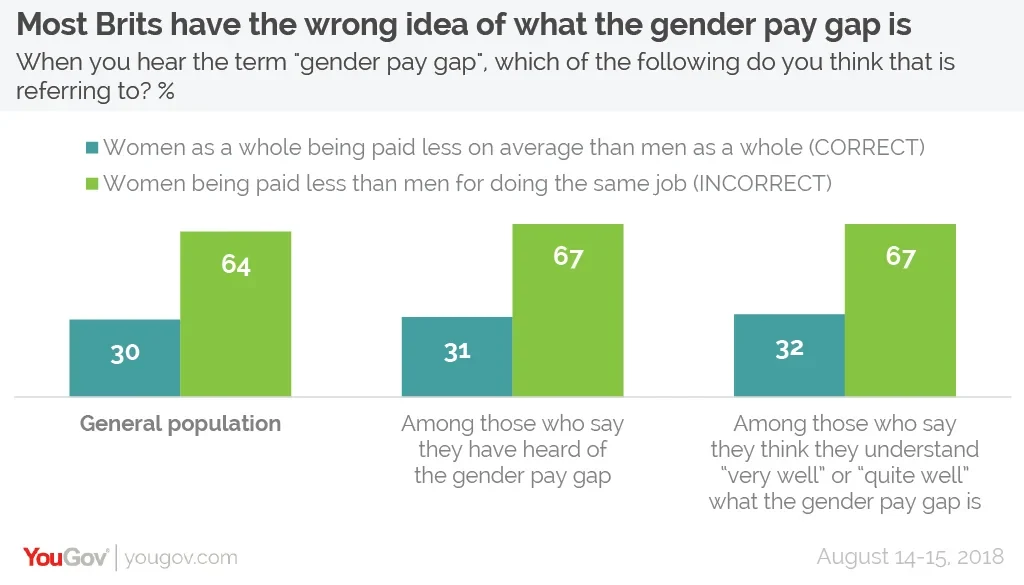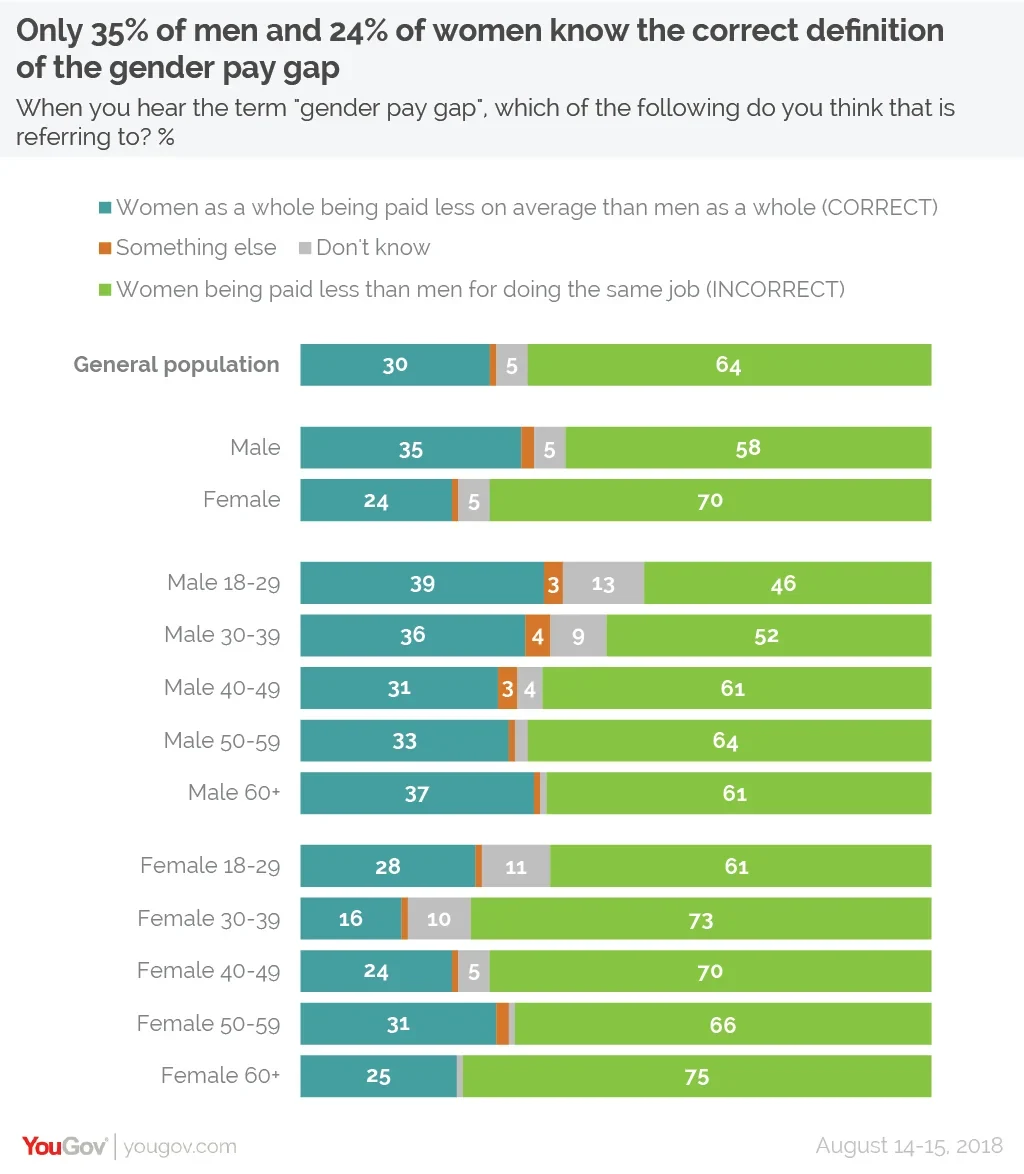Just 30% of Britons correctly chose the right definition of the term
The gender pay gap is the difference between men’s and women’s average earnings across an organisation or industry or country. According to the Equality and Human Rights Commission, the gender pay gap across Britain as a whole is 18.1% – that is to say the average pay of British women as a whole is 18.1% less than the average pay of British men as a whole.
There are many reasons why such a gender pay gap exists in Britain. The gap is significantly wider among older age groups, who will have faced regulatory constraints at the beginning of their careers preventing women from working in certain industries or, in some instances, taking up work without a husband's consent.
Today, women are more likely to work in lower paid industries, often in the care and education sectors. Women are also considerably more likely than men to take longer periods out of work to care for children or elderly relatives - whether by choice or because of a lack of support for shared parental leave. Many workplaces do not provide the necessary support for women to get their careers back on track when returning to work. In some instances women also face discrimination in the hiring process on the basis that the 'risk' of their leaving to have a child makes them less worthwhile than hiring a male candidate.
The government has recently been taking action to try and close the gender pay gap. Since April employers with 250 or more employees have been legally required to publish the gender pay gap at their company.
But despite the increased focus on the measure a new YouGov survey reveals that most Brits don’t actually know what the gender pay gap is.
Most Brits mix up equal pay and the gender pay gap
Asked whether they thought the gender pay gap was “women as a whole being paid less on average than men as a whole” or “women being paid less than men for doing the same job”, only 30% correctly chose the former option. By contrast, close to two thirds (64%) incorrectly chose the latter answer, which is specifically about equal pay (in this the failure to do so).
A further 1% answered “something else” and the remaining 5% answered “don’t know”.

This is in spite of the fact that 90% of Brits say they have heard of the gender pay gap, and 83% saying they believe they understand “very well” or “quite well” what the gender pay gap is.
Of those who have heard of the gender pay gap, only 31% chose the right answer. Likewise among those who said they thought they understood the term “very well” only 33% chose the right answer, as did 31% of those thinking they understood the term “quite well”.
Men are more likely to have chosen the correct answer than women. One in three men (35%) chose the correct answer, compared to only one in four women (24%). By contrast, 70% of women chose the unequal pay definition, as did 58% of men. (Men and women answered “don’t know” at the same rate – 5%).
How old a person is does not seem to play a role in whether or not a person got the answer correct, with no obvious trends emerging based on the age of the men and women in the survey.

The lack of understanding of the gender pay gap, and how it differs from equal pay, presents an obvious issue for campaigners seeking to address the issue. Where equal pay is illegal and easy to spot, the gender pay gap is a more subtle problem relating to everything from increasing take-up of shared parental leave to dismantling gender stereotypes around different types of work.
While the former is simply a matter of workers' rights, the latter requires effort from government, employers, but also education and civil society to tackle. If gender pay gap campaigners seek to make progress, one of the first things they need to ensure is that everyone understands the challenge at hand.
Photo: Getty









